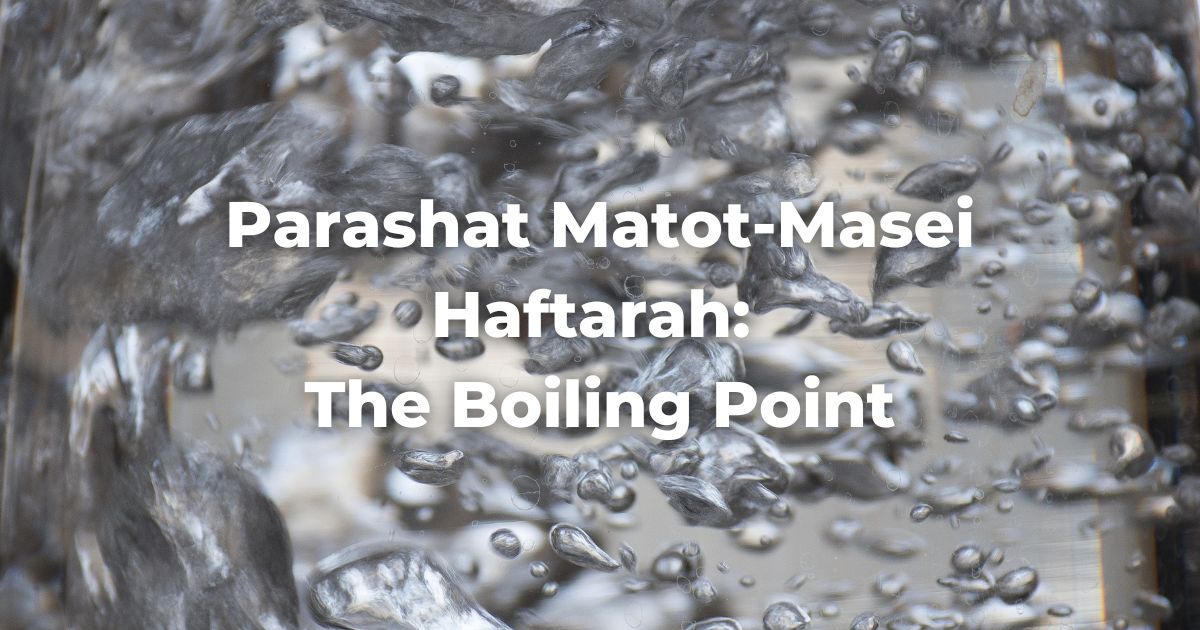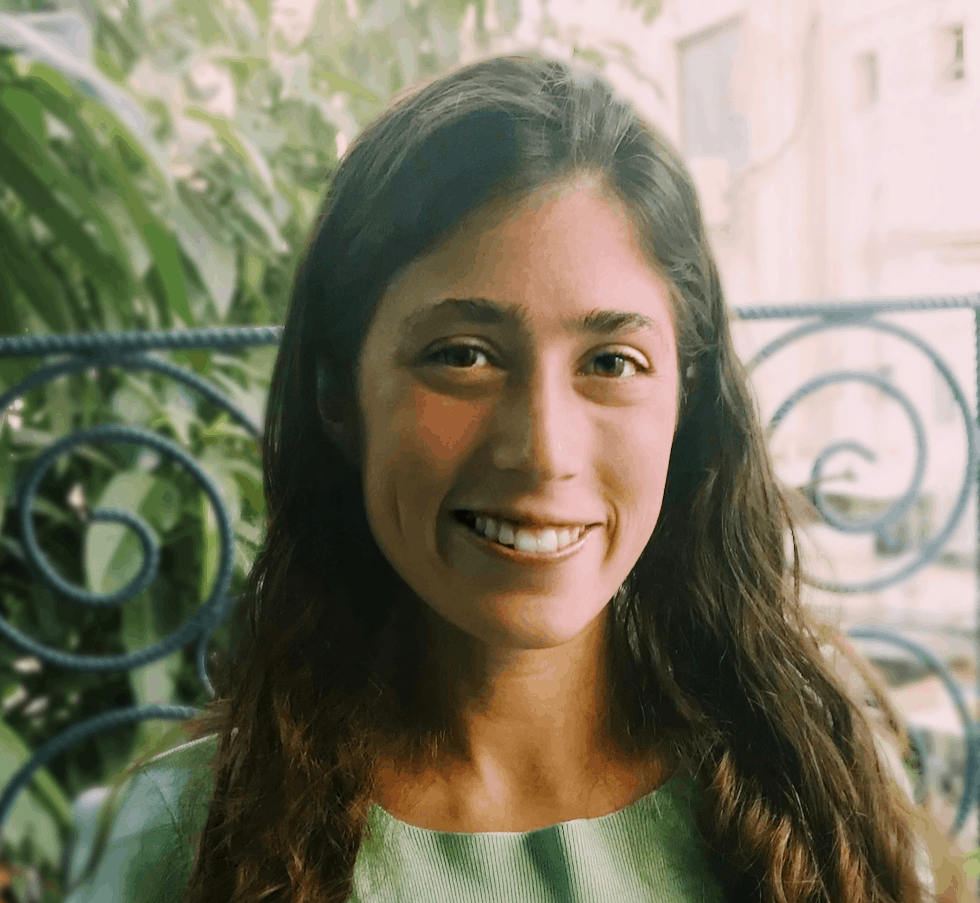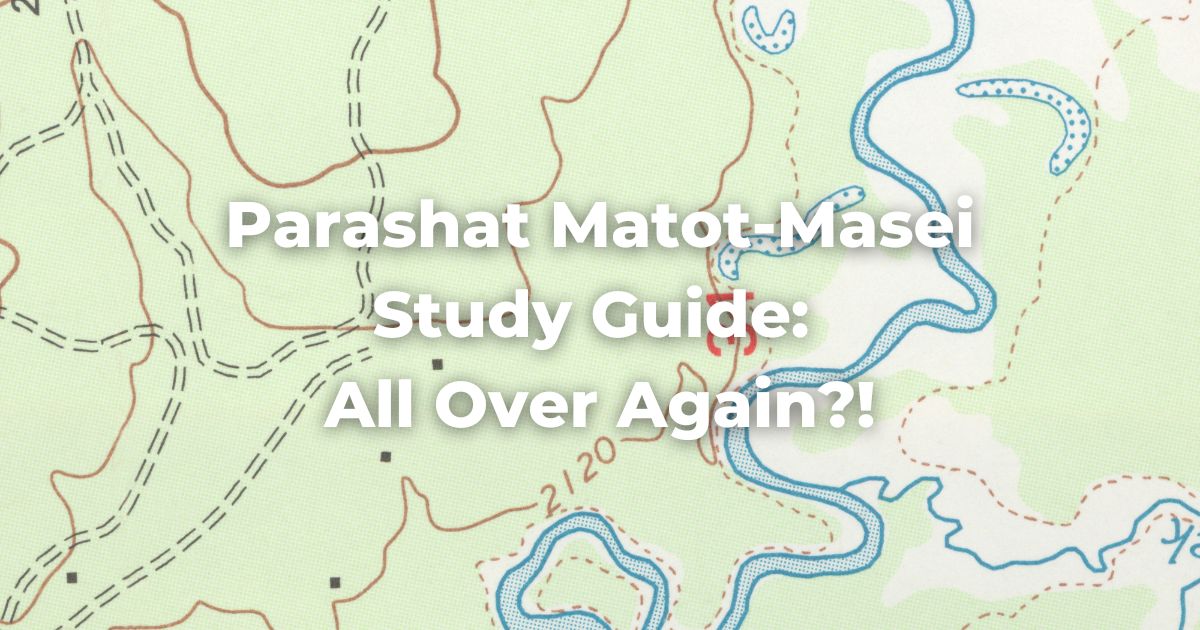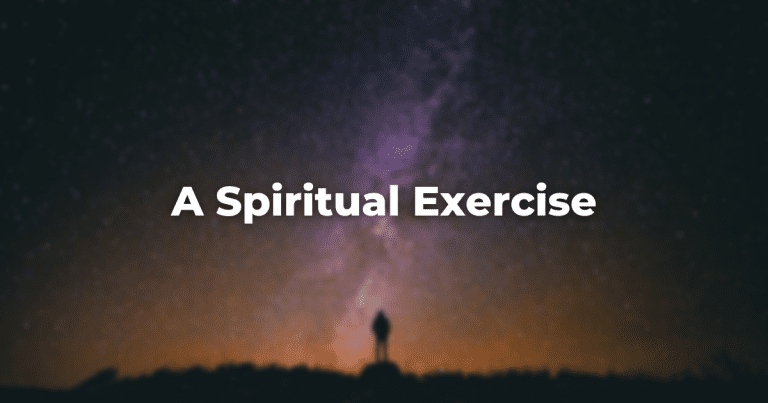In the dead heat of summer, in these three weeks leading up to Tisha B’av and the recitation of the horrors of the burning of Jerusalem, we read the second chapter of Jeremiah, a passage overflowing with water imagery.
Water at the Boiling Point
The source of the water is God and the source of the conflict in the chapter is our failure to recognize the water God has given us.
The structure of the chapter is a riv, a legal argument made, in this case, by God, against us, accusing us of not recognizing God. God names Godself in verse thirteen, calling Godself “the source of living waters.” But we did not know it.
Turning away from the source of living waters, we dug faulty wells, wells too broken to even hold water.
It is a heartbreaking image. In the shimmering heat of midsummer, we desperately seek the only thing that can save us, the water to cool us. But the more we seek it the further we find ourselves from it. We work hard building useless wells for water we no longer have and couldn’t store if we did.
The hard work tires us out, dehydrating us, causing us to need that water all the more. We work harder and harder at the wrong task, trying to achieve our goal in a way that can never work.
The Affect of Heat and the Boiling Point
It gets worse. We do not learn. We do not stop and consider why we have yet to find relief. As the heat addles our brains, we double down on incorrect methods, blaming external forces rather than our own actions. We look for the waters of Egypt and Mesopotamia. We reach out to foreign nations for relief. But the water we find there is “bad and bitter.”
The situation becomes even more desperate, even more humiliating. Where once we sought water and could not find it, now we find water but cannot drink it. We are tantalizingly close to the solution to our desperate thirst but as we approach it shifts, revealing itself as not ours, as poisonous to us.
In our agony, the world seems to have dried up. We reflect back on the source of it all.
But even this we do incorrectly.
We wonder why God has been a desert to us. We identify God as a desert, a dry place. God had identified Godself as the source of living waters. It is we, rather, who, having been planted in a place of abundance, having been given the ability to make the desert bloom, have instead made the garden wither.
As we approach Tisha B’av this summer, we have to feel the heat. We are once more presented with the choice: continue digging useless wells, or acknowledge where we have done wrong and return to the source.
See more: Parashat Matot, Parashat Masei
Originally posted as part of the Conservative Yeshiva at the Fuchsberg Jerusalem Center’s Torah Sparks. Support TorahRefers to the first five books of the Hebrew Bible, the Tanakh, also called the Five Books of Moses, Pentateuch or the Hebrew equivalent, Humash. This is also called the Written Torah. The term may also refer to teachings that expound on Jewish tradition. Read more learning from the Fuchsberg Jerusalem Center/Conservative Yeshiva for leaders and seekers around the world here.
Authors
-

Bex Stern Rosenblatt is the Conservative Yeshiva’s Faculty-in-Residence for the Mid-Atlantic Region of the United States, teaching Tanach, using the techniques of close-reading, theater, feminist readings, and traditional commentators. Bex also directs the CY’s recruitment efforts in North America. After finishing her B.A. in History and German at Williams College, Bex received a Fulbright Grant to Austria. She later earned an M.A. in TanakhAn acronym for the name of the Hebrew Bible: Torah, Neviim, and Ketuvim. Read more from Bar Ilan University and has also studied at the Conservative Yeshiva and Bina Jerusalem. Bex is the founder of HavrutaA study partner. A hevruta is more than just a ‘study buddy’ it is a serious and personal relationship between colleagues. Also spelled: Havruta Read more Tel Aviv, an organization that facilitates guided pair-learning of the Tanakh.
View all posts -



The Fuchsberg Jerusalem Center (FJC) is a home in the heart of Jerusalem where leaders and seekers can find an authentic place in Jewish tradition to call their own. FJC offers opportunities to study, pray and explore within an egalitarian and inclusive setting, creating multiple pathways for finding personal and communal meaning.
View all posts






